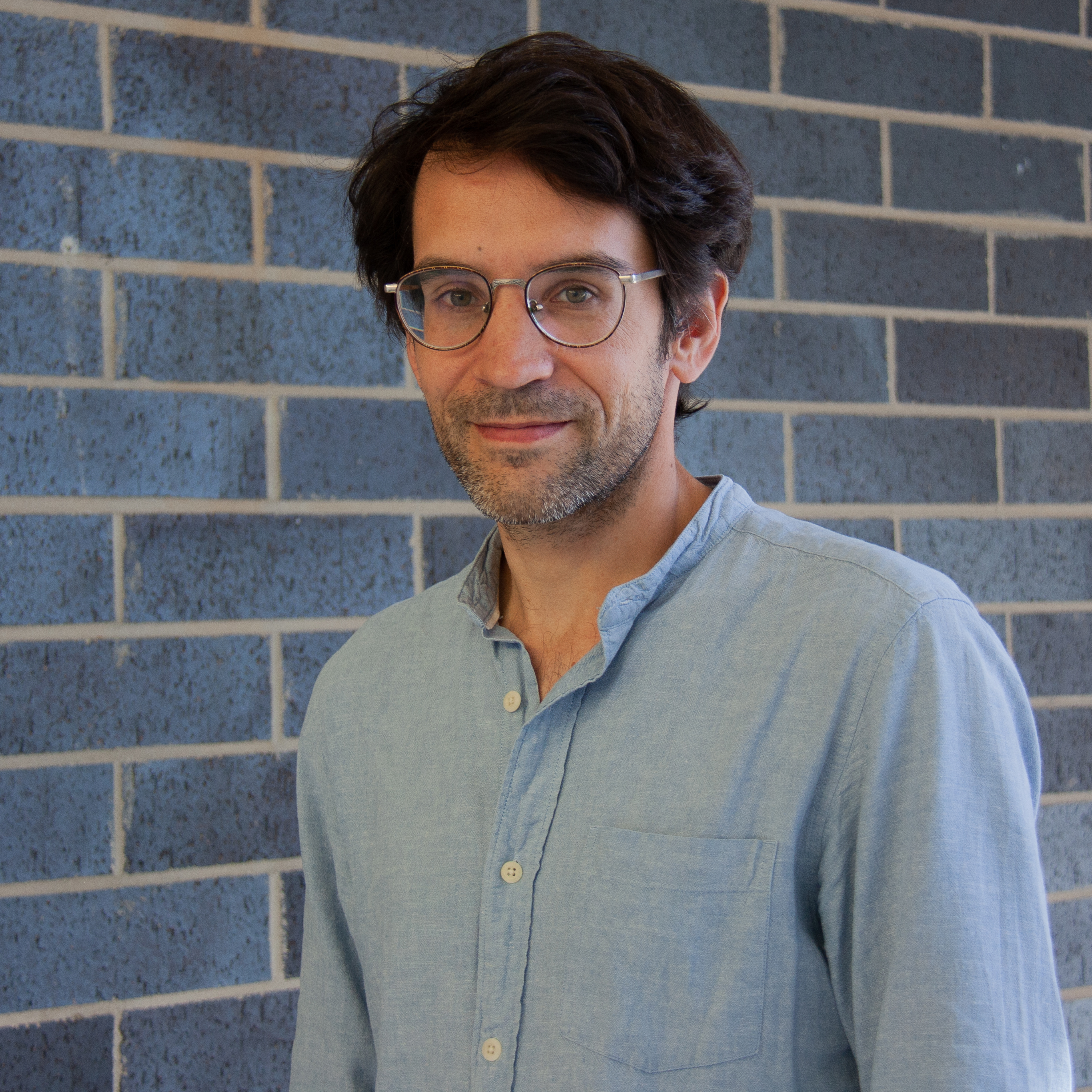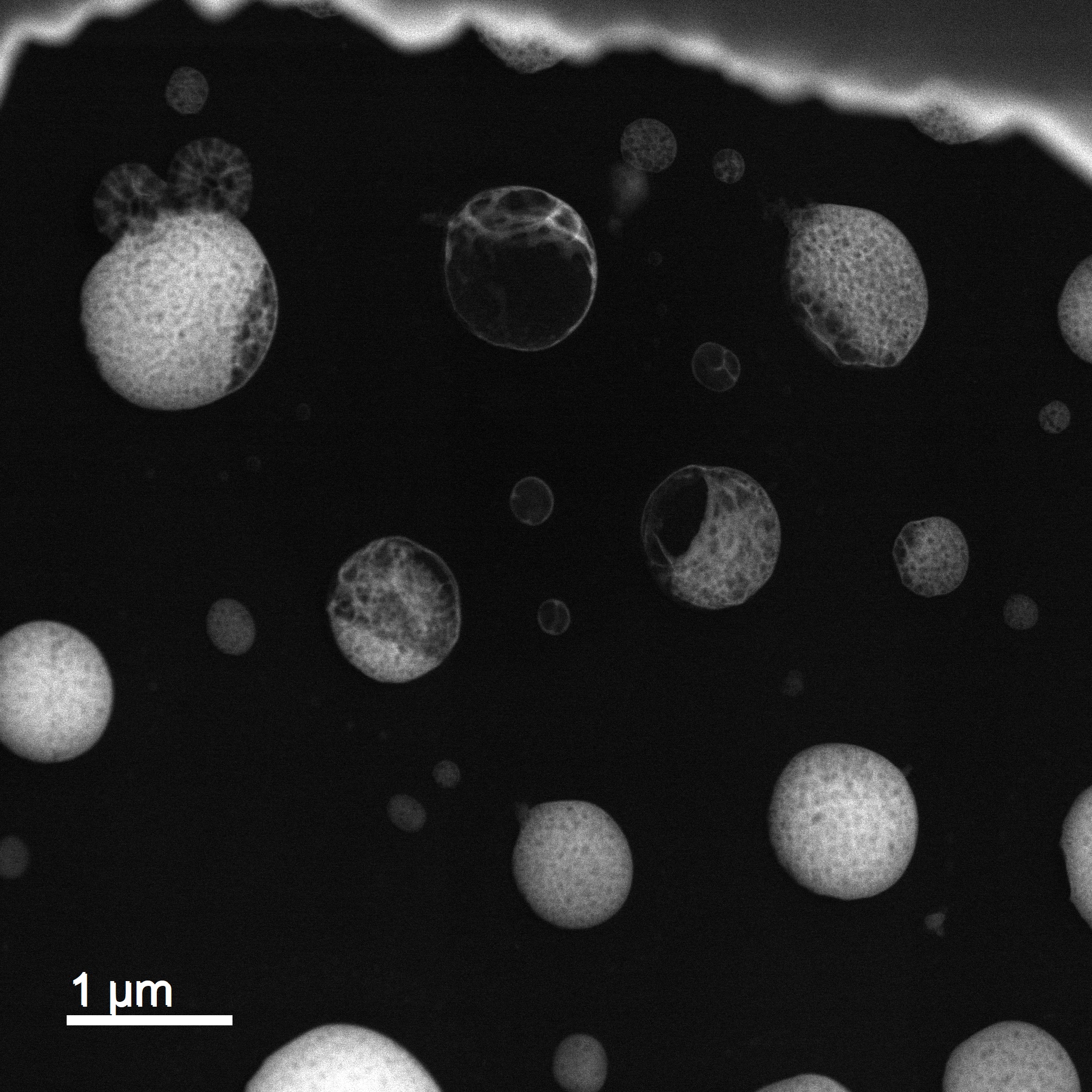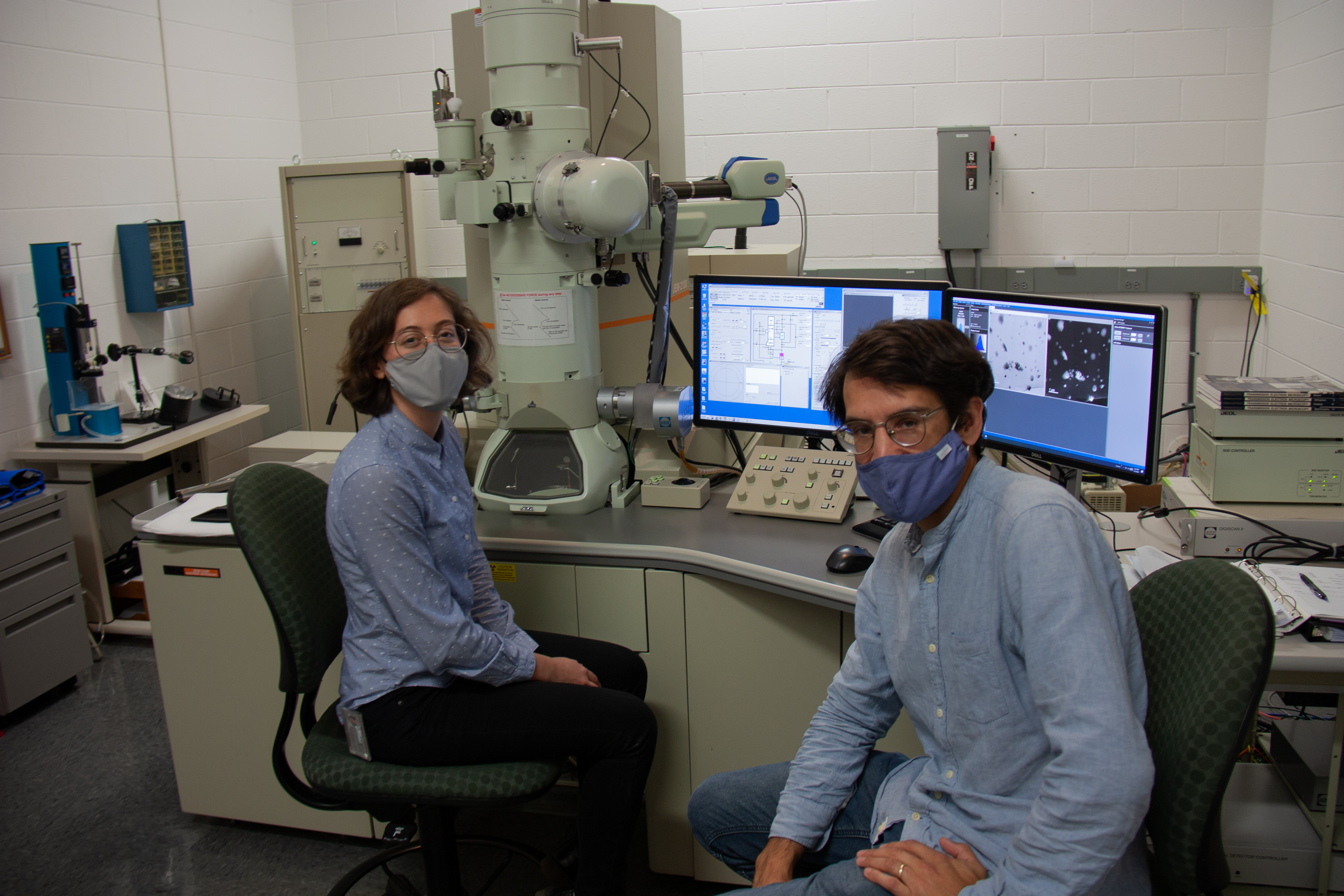Meet the User: Adrian Hornby

The National Center for Earth and Environmental Nanotechnology Infrastructure (NanoEarth) at Virginia Tech often hosts users to facilitate their Earth and environmental nanotechnology research. Adrian Hornby, a Postdoctoral Research Associate from Cornell University, recently worked with NanoEarth’s Sheri Singerling utilizing the transmission electron microscope (TEM).
Adrian Hornby is currently studying a variety of particles found in volcanic plumes. These particles were collected at La Palma and Hawaii and analyzed at NanoEarth. The particles found in the plume include silicate ash, S- and halogen-bearing acid aerosol and salts, carbon structures, and ambient particles. These particles may present a chronic respiratory health risk to nearby communities. “By comparing the particulate matter collected at La Palma and Hawaii,” Hornby stated, “We hope to describe common hazards to respiratory health and their spatial variability during future eruptions on plume-fed volcanic islands.”
Raised in the United Kingdom, Hornby completed his undergraduate studies in geology at Royal Holloway, University of London. With an interest in volcanology, he completed an internship post-graduation at a volcano observatory in Colima, Mexico. This experience led to a chance meeting with Professor Yan Lavallée, compelling Hornby to pursue a PhD in volcanology at the University of Liverpool. His studies focused on the lava dome eruptions of Mount Unzen in Japan and Santiaguito in Guatemala. Towards the end of his program, Hornby and his wife Gloria welcomed twin boys!
Hornby’s journey led him to Ludwig-Maximilians-University, Munich, where he became a Marie Curie Fellow and then later a Postdoctoral Research Associate. After studying Volcán de Colima in Mexico and Mount Etna in Italy, Hornby accepted his current NASA-funded postdoctoral position with Cornell University.
While working with a team of atmospheric scientists and remote sensing specialists, Hornby documents a catalog of fine-to-ultrafine volcanic ash properties to better understand the effects of large volcanic eruptions on the Earth’s ecosystems.
In his home state of New York, Hornby enjoys time with his family, farm-fresh eggs, and taking runs through the community. His advice to young researchers is “to carefully consider career decisions and to balance potential academic progress with quality of life – including family, friends, culture, and hobbies”.








